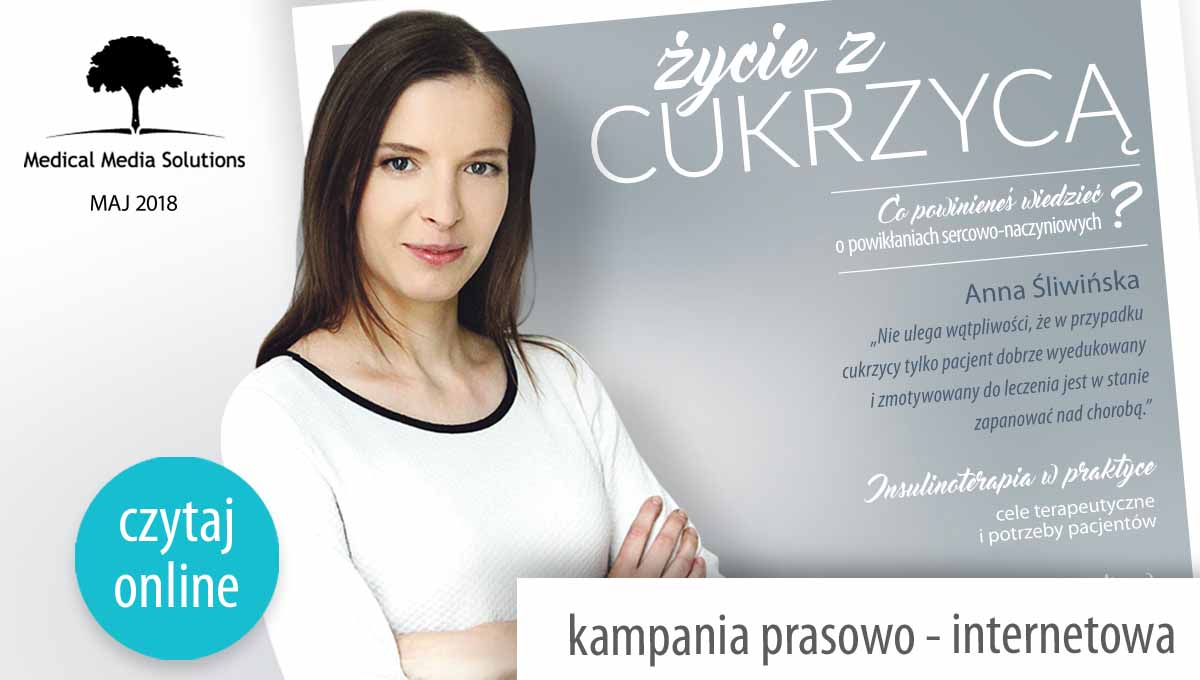Today, 18 May, the 9th edition of the 'Living with Diabetes' press and internet campaign is inaugurated. It is organised by the publishing house Medical Media Solutions. The project has been developed over the years with the substantive support of many prominent experts, foundations, associations, opinion-leading media and organisations. It aims to unite Specialists, Patients, their relatives and also to reach decision-makers for whom the concern for health education and the assistance offered to patients and their families in accessing modern, safe and effective treatment should be paramount. Once again, we have taken the title under our official patronage, so today we recommend this educational read to you. You will find a lot of reliable and inspiring material in it. Look out for the nationwide publication today in Dz. Rzeczpospolita, and in the following days all the extended materials will be available on the publisher's website.


